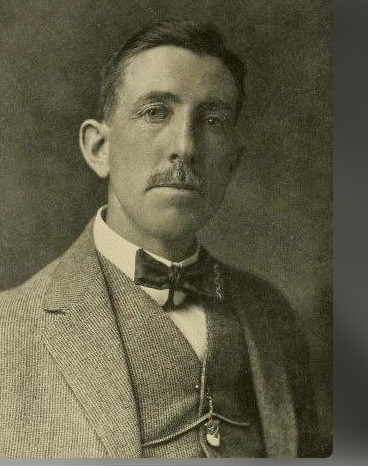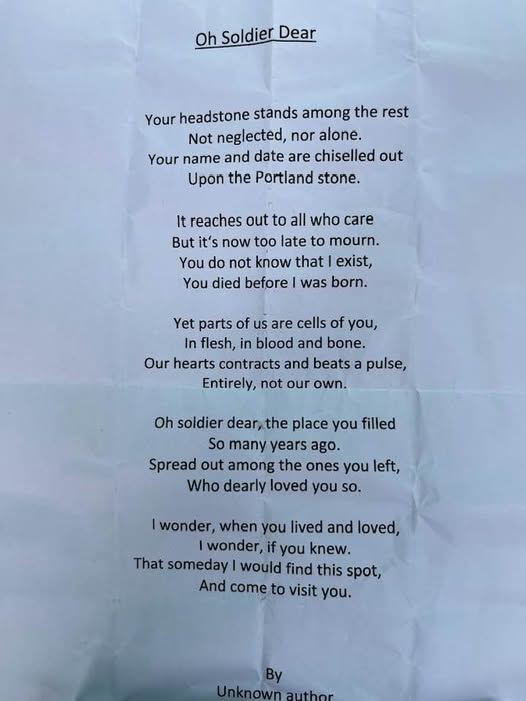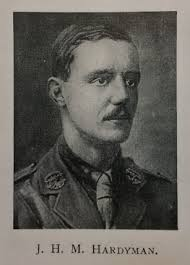Edward Owen Rutter was born on 7th November 1889, apparently in New York, United States of America. He went to live in the United Kingdom at an early age
Educated at St Paul's School, London, Edward went on to serve with the North Borneo Civil Service from 1910 to 1915, Edward returned to Britain during The First World War and was commissione and served with the 7th Battalion of the Wiltshire Regiment in France and on the Salonika Front. He edited “The Balkan News” which included – using the pen name "Klip-Klip" - his parody of Henry Wadsworth Longfellow's “The Song of Hiawatha” in serial form. Entitled “The Song of Tiadatha” it has been described as "one of the masterpieces of Great War verse". Later, when published as a book, “Tiadatha” ("Tired Arthur") was the story of a naive, privileged young man who matures through his war experiences, particularly on the Macedonian front fighting against the Bulgarians, and including the Great Thessaloniki Fire of 1917. This volume was followed by “Travels of Tiadatha” (1922).
Accompanied by his wife – Dorothy Janet, nee Younger, who also took many of the photographs for his books - Edward travelled around the world, making extended stops in Borneo, Hong Kong, Taiwan (then known as Formosa), Japan, Canada and the United States among other places.
From 1933, Edward was a partner in the Golden Cockerel Press. During the Second World War, Major Rutter worked for the Ministry of Information writing a number of booklets covering the British war effort.
Edward was a Fellow of the Royal Geographical Society and of the Royal Anthropological Institute and a member of the Athenaeum Club, London.
Edward Owen Rutter died on 2nd August 1944.
From “THE SONG OF TIADATHA”
CHAPTER I
THE JOINING OF TIADATHA
Should you question, should you ask me
Whence this song of Tiadatha?
Who on earth was Tiadatha?
I should answer, I should tell you,
He was what we call a filbert,
Youth of two and twenty summers.
You could see him any morning
In July of 1914,
Strolling slowly down St. James’s
From his comfy flat in Duke Street.
Little recked he of in those days,
Save of socks and ties and hair-wash,
Girls and motor-cars and suppers;
Little suppers at the Carlton,
Little teas at Rumpelmeyer’s,
Little week-ends down at Skindle’s;
Troc and Cri and Murray’s knew him,
And the Piccadilly grill-room,
And he used to dance at Ciro’s
With the fairies from the chorus.
There were many Tired Arthurs
In July of 1914.
Then came war, and Tiadatha
Read his papers every morning,
Read the posters on the hoardings,
Read “Your King and Country want you.”
“I must go,” said Tiadatha,
Toying with his devilled kidneys,
“Do my bit and join the Army.”
So he hunted up a great-aunt,
Who knew someone in the Service,
Found himself in time gazetted
To a temporary commission
In the 14th Royal Dudshires.
Straightway Tiadatha hied him
To the shop of Bope and Pradley,
Having seen their thrilling adverts.
In the Tube and in the Tatler.
Pradley sold him all he needed,
Bope a lot of things he didn’t,
Pressed upon him socks and puttees,
Haversacks and water-bottles.
Made him tunics for the winter,
Made him tunics for the summer,
And some very baggy breeches.
There he chose his cap of khaki,
Very light and very floppy
(Rather like a tam-o’-shanter),
And a supple chestnut Sam Browne,
Quite a pleasant thing in Sam Brownes,
Rather new but very supple.
Many pounds spent Tiadatha
On valises, baths and camp beds,
Spent on wash-hand stands and kit bags.
Macs and British warms and great-coats,
And a gent’s complete revolver.
Then he went to Piccadilly,
Mr. Wing, of Piccadilly,
Where he ordered ties and shirtings,
Cream and coffee ties and shirtings,
Ordered socks and underclothing,
Putting down the lot to Father.
Compass, torch and boots and glasses
All of these sought Tiadatha;
All day boys with loads were streaming
To and from the flat in Duke Street,
Like a chain of ants hard at it
Storing rations for the winter.
“One thing more,” cried Tiadatha,
“One thing more ere I am perfect.
I must have a sword to carry
In a jolly leather scabbard.”
So he called the son of Wilkin,
Wilkin’s son who dwelt in Pall Mall,
Bade him make a sword and scabbard.
And the mighty son of Wilkin
Made a sword for Tiadatha,
From the truest steel he made it,
Slim and slender as a maiden,
Sharper than a safety razor,
Sighed a little as he made it,
Knowing well that Tiadatha
Probably would never use it.
Then at last my Tiadatha
Sallied forth to join the Dudshires,
Dressed in khaki, quite a soldier,
Floppy cap and baggy breeches,
Round his waist the supple Sam Browne,
At his side the sword and scabbard,
Took salutes from private soldiers
And saluted Sergeant-Majors
(Who were very much embarrassed),
And reported at Headquarters
Of the 14th Royal Dudshires.
Shady waters of a river,
Feels when by some turn of fortune
He gets plopped into a cistern
At a comic dime museum,
Finds himself among strange fishes,
Finds his happy freedom vanished,
Even so felt Tiadatha
On the day he joined the Dudshires.
But he pulled himself together,
Found the Adjutant, saluted,
Saying briefly, “Please I’ve come, sir.”
Such was Tiadatha’s joining.
Sources: Wikipedia, Find my past and Project Gutenberg
https://www.google.com/search?q=where+was+the+poet+Edward+Owen+Rutter+born%3F&rlz=1C1CHBD_en-GBGB794GB794&oq=where+was+the+poet+Edward+Owen+Rutter+born%3F&aqs=chrome..69i57j0i512i546j0i751j0i512i546j0i751j0i512i546.8640j0j7&sourceid=chrome&ie=UTF-8
“The Song of Tiadatha” is available to read on Project Gutenberg
https://www.gutenberg.org/files/67937/67937-h/67937-h.htm






